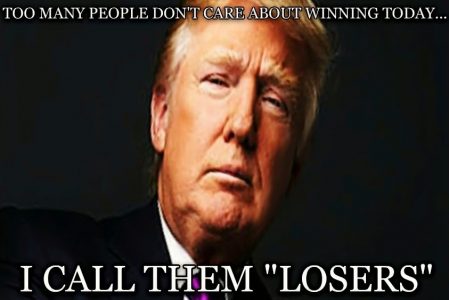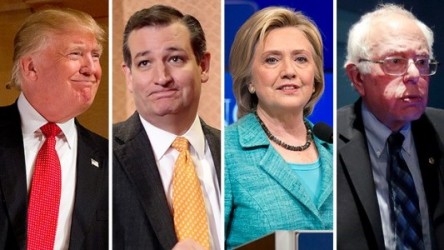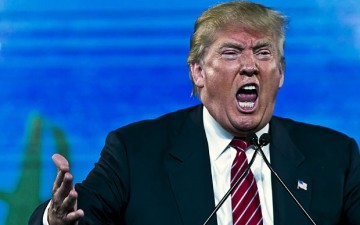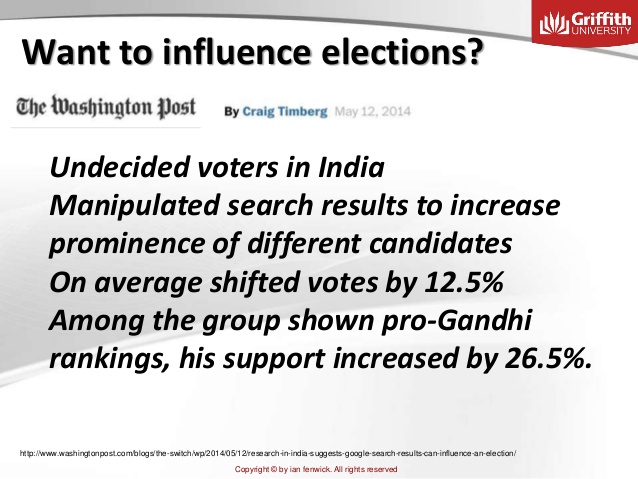Will This Kill Americans?
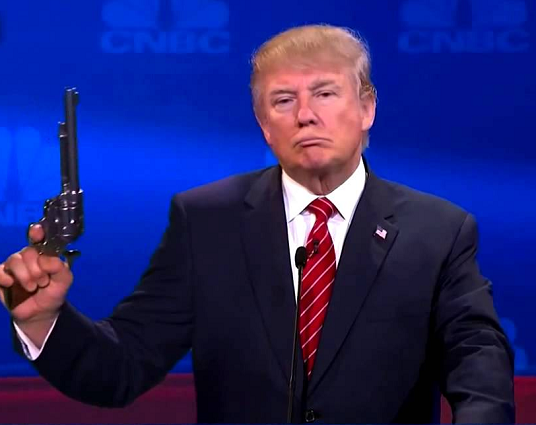
Politics used to be hard. You had to balance the needs and desires of a wide range of stakeholders with competing interests. You needed to communicate the benefits of your actions, and contrast them to the failures and flaws of other approaches as proposed by your political opponents, interest groups, lobbyists and the media. You needed to worry about balancing the budget, setting an appropriate level of tax and impost on those with plenty without offending them so they would prefer to spend their money on pulling you down, and an appropriate level of social support for those with little so they don’t spend their time marching on the streets. Politics used to be about a million little decisions and benchmarks and complicated analysis of every possible decision to identify, as closely as possible, the full range of those it could hurt or help.
With the rise of right-wing populism, and the ensuing assumption to the Presidency of Donald Trump, it is becoming apparent that these considerations are luxuries. There are basic, fundamental questions and requirements that must be met before higher-level consideration of costs and benefits can be addressed. The United States of America, to date, has been blessed with leadership that can largely take these fundamental questions as granted; Presidents and Congressmen for whom common sense and fundamental decency provided a baseline of behaviour and practice allowing politics to move on to the more complicated and difficult questions of policy.
Through Donald Trump’s published positions, his appointments to key roles in government, and the avowed desires of the Republican party he leads, these basic requirements can no longer be assumed. Accordingly, it may be appropriate to boil fundamental policy deliberation down to a simple benchmark, which may be summarised as follows:
Will this kill Americans?
If this is a fundamental benchmark, unfortunately in the lead-up to his inauguration, Donald Trump’s record so far is not promising.
The Affordable Care Act
Even before Trump has entered the Oval Office, he and his incoming administration are taking the first steps to dismantle the Affordable Care Act. Commonly (and derogatively) referred to as “Obamacare”, the ACA made significant changes to America’s healthcare systems. (A simplified explanation is available here: https://www.youtube.com/watch?v=JZkk6ueZt-U) Whilst there were some people who faced higher taxes, and some who were forced to buy (subsidised) health insurance or face a levy, the main outcome of Obamacare was to massively increase the coverage of health insurance. Suddenly, millions of Americans who previously did not have and could not get insurance were able (and required) to get insurance. Empirically and provably, this saved lives, and continues to do so.
Provisions in Obamacare improved hospital care standards and reduced preventable deaths. The Affordable Care Act made it illegal for insurers to deny insurance to those with prior conditions. The ACA made it illegal for insurers to classify “being a woman” as a pre-existing condition and charge higher premiums. The ACA provides means-tested subsidies for health insurance. The ACA significantly expanded Medicaid (America’s version of Medicare). The ACA regulated subsidies for medicines and ensured access to those who needed them. And the Affordable Care Act prevented insurers from unilaterally cancelling insurance for Americans when they got sick.
Even if the Republican Senate and Congress replace the Affordable Care Act promptly, the kind of plans they have suggested and are still promoting will be a return to the bad old days and all of these things, demonstrably detrimental to the lives and health of the American public, will return.
According to critics, repealing Obamacare would put coverage at risk for more than 20 million Americans covered under the law’s insurance exchanges and Medicaid expansion. Repealing the Affordable Healthcare Act, with no replacement scheme ready and potentially no intention to ever implement such a replacement scheme, will inarguably kill Americans.
Commission on Vaccine Safety
On 10 January, President-Elect Donald Trump had a private meeting with Robert F. Kennedy, Jr., who later the same morning claimed that Trump had asked him to lead a government Commission into Vaccine Safety, including ensuring “scientific integrity in the vaccine process for efficacy and safety effects.” Kennedy is a well-known vaccine skeptic, a proponent of ideas first raised by Andrew Wakefield. Wakefield’s research was later proved to be falsified, with the British Medical Council finding Wakefield guilty of dishonesty and of “callous disregard” for the pain of the children in his study.
Despite being struck off the register of licensed medical practicioners and thoroughly disgraced, Wakefield’s ficticious link between vaccines (and the preservatives in them) and autism has persisted. Thanks to some high-profile advocates (Jenny McCarthy, Jim Carrey and Rob Schneider are amongst the most well-known) there remains a substantial undercurrent of skepticism towards vaccination of children, a trend that public health advocates have struggled for decades to address.
To the list of public proponents of the vaccines-autism link you can add Donald Trump, who has been a critic of immunisation for decades. Now, as President-Elect, he has the public profile that takes his beliefs from “dangerously misguided” to “actively harmful”. As President, the things that Trump believes and states will hold some weight with Americans. The things he chooses to support – such as an official investigation into the “dangers of vaccination” – will affect the beliefs and actions of Americans. By appearing to support the connection of vaccination and autism (and other, unspecified harms) Trump gives legitimacy to those who oppose immunisation and either choose not to vaccinate their own children or encourage others likewise.
The antivaccination movement is already too strong. Increases in the rate of unvaccinated have contributed to outbreaks of preventable disease in the last few years – for example, a measles outbreak at Disneyland in 2014, which contributed to a resurgence of the disease after it was almost eradicated in the year 2000. That outbreak did not cause any deaths, but it could have. The CDC estimates that 164,000 people around the world die from measles each year. Whooping cough, another vaccine-preventable disease, is experiencing a resurgence in the United States and, globally, causes almost 200,000 deaths per year.
Preventable diseases will not always kill those that experience them. Healthcare in the United States is reasonably high-quality and most of those admitted to hospital with measles or whooping cough or other diseases will survive. However, not all will. And with the increase in the rates of non-vaccination, major outbreaks of disease become more likely, herd immunity decreases, and the severity of diseases will increase. Playing with unscientific, dangerous screeds like vaccine-autism linkages will contribute to a reduction in the American public’s health and well-being, and whilst the linkages might be tenuous, will kill Americans.
Trump’s Attitude Towards National Security
By now you may have heard about Michael Moore’s recent prediction about Donald Trump’s Presidency. No, not the one that correctly predicted, six months in advance, that Trump would win. The other one. “Donald Trump is Gonna Get Us Killed“. Moore argues that Trump’s attitude towards the daily security briefings each President receives from the combined services of the country – to wit, that he doesn’t “need to hear the same thing over and over each day for eight years” and won’t bother to attend them – will weaken America’s readiness for the next terrorist attack. Perhaps starting as he intends to continue, reportedly Trump had only attended “two or three” of the first 36 briefings.
It might be argued that the security apparatus of the United States has things well in hand, and Trump’s inattention won’t, by itself, lead to security breaches. Moore points to George W Bush, who allegedly ignored briefings that, if acted upon correctly, might have prevented Bin Laden’s 11 September 2001 attacks on the World Trade Center and Pentagon. It’s easy in retrospect to say that more attention to any specific piece of information could have reached a different outcome, but there are a multitude of threats and countries do have to rely primarily on their security forces, not the actions of a specific Head of State.
It is surely, however, incumbent upon that Head of State to pour oil upon troubled waters, not petrol onto fires. The world in 2017 is rife with threats – from climate change and the global unrest it will create, to the imperial ambitions of China and Trump’s good friend Russia, to the bellicose rumblings of North Korea and Iran, and the ongoing threat of Isis. So is Trump a peacemaker? Or is he a trembling finger-breadth from pressing the nuclear button?
The President of the United States is the only person in the world with the ability to unilaterally launch a nuclear strike. The executive powers granted to him do not require a second person to confirm the order, and nobody in the US government has the authority to countermand or disobey him. The only thing stopping a President from laying waste to a city full of civilians – and seventy years of tacit agreement not to use nuclear weapons – is an appreciation of the ramifications.
Donald Trump’s instant response to any form of criticism or threat is to attack with full force. America’s early warning systems have malfunctioned and provided erroneous information about an incoming nuclear attack on the USA on many previous occasions. It may be unreasonably optimistic to think that Trump, given a maximum of twelve minutes to make up his mind, would delay a counterstrike long enough to ensure that the information was correct. A nuclear war, however short and brutal, would definitively kill Americans.
Trump can kill Americans without ever triggering a nuclear attack on US soil. The President-Elect’s pronouncements on nuclear proliferation are in direct contradiction to the USA’s official push for nuclear disarmament. Trump seems to think that the development of nuclear weapons by Japan, South Korea and Saudi Arabia is a good thing. Nuclear strategists know that proliferation is probably the worst possible outcome for prevention of a nuclear war – smaller nations having access to nuclear weapons raises the possibility of a nuclear engagement that could be regarded as “localised”. Until now, the chief reason nobody has used nuclear weapons is because to do so invites global armageddon. A world in which a nuclear weapon can be seriously considered as a military tactic is a world one step closer to their use, but to think that a nuclear engagement could stay localised may be wishful thinking: wars of any stripe have a long history of escalating.
Trump’s aggressive posture towards ISIS and Islamic extremism make Americans a more tempting target for Jihadis and invite further terrorist attacks, both on US soil and wherever American troops may be stationed overseas. Trump’s disdain for NATO reduces the effectiveness of a flawed but necessary deterrent to European wars. And Trump’s America-First approach to military treaties threatens to destabilise regions including Australia’s own region.
To form his administration, Trump has assembled a cadre of conspiracy theorists and right-wing media barons, of redneck generals and billionaire businessmen. Notably lacking are cool heads and long experience in the fields of national security or international diplomacy. The Trump presidency has the potential to be one of ongoing global strife, and the man at the helm is not one to act as a force of moderation. Whether or not the nukes start flying, Donald Trump is likely to get Americans killed.









